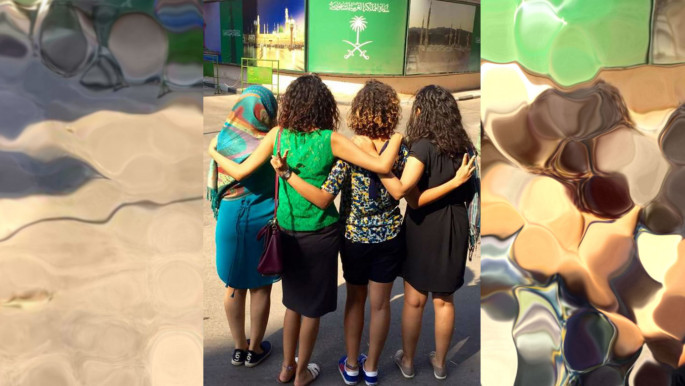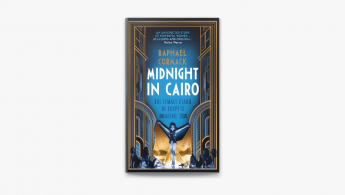Midnight in Cairo: The female stars of Egypt's roaring '20s
This strangely seductive read takes us into the heart of Cairo's Ezbekiyya district during the late 19th century up until the 1950s.
Calling it an entertainment district where female stars of stage and screen graced from Mounira Al-Mahdiyya to Oum Kalthoum would not adequately capture what this area was.
Casinos, clubs, theatres and cinemas, Ezbekiyya was the place where a new vision of Egypt was explored and where ideas of morality, women's liberation, national independence and new artistic forms rubbed up against one another. A new modernising and cosmopolitan Cairo where the future seemed possible.
Rose Al-Youssef, one of Egypt's most famous actresses during the 1920s, was just one of the key fascinating figures we encounter in the book. Attracted to the possibilities the new Egypt had to offer, Al-Youssef, was also using her celebrity to pioneer.
 |
Ezbekiyya was the place where a new vision of Egypt was explored and where ideas of morality, women's liberation, national independence and new artistic forms rubbed up against one another |  |
Working in the theatres in Ezbekiyya, a chance encounter with a salesman with newspapers and magazines, which she bought would transform her.
"She turned to the arts section, and, as she recalled in her memoirs, was dismayed to see that these so-called theatre journalists dealt in nothing but gossip, lies and personal attacks. Among all the articles about her and others like her, there was no serious criticism or even anything resembling it."
Not wanting to standby while actors and actresses were trashed by the media, Rose, gathered friends and proposed setting up her own magazine which would serve as their outlet on the arts and take on the critics.
The magazine, which is named after her, "soon became one of the most important cultural-political journals in interwar Cairo."
The daughter of a Turkish Muslim father, but raised in a Christian family, who in turn also left her, Rose found herself on her own and without connections in Ezbekiyya, where she worked her way into theatre and learned to be resilient. She would use her success to empower other women and did not shy away from battles against prevailing misogyny.
 |
| Read also: Egypt's Miniskirt Revolution |
Indeed the feminist movement play a key role in the book, during the 1919 revolution against British rule, theatres houses and cabarets became sites of protests and victories by the revolutionaries were celebrated on stage.
Songs celebrating women's rights activism were sung, "Egyptians, take joy and salute today's women's renaissance... Who said Egyptian women were worth less than Western women? Whether it be in love of their country or in raising their children, the women of the Nile have no equals... Come on sisters, let's go hand in hand to demand our freedom."
Radical politics had a long history within the district, despite being a haunt for British and Australian soldiers looking for brothels or entertainment during the First World War.
It was a district that embraced the diversity of the new nation, people from across Asia, Africa, Europe and the Americans flocked to Cairo and many women became performers in theatres and clubhouses. But as Cormack cautions we should not romanticise this period of time as there was considerable backlash against everything this district represented and many of the female stars often had to fight tough battles.
 |
Egyptians, take joy and salute today's women's renaissance... Who said Egyptian women were worth less than Western women |  |
Many of these battles were lost and arguably some of the things these women tried to pioneer died with them.
Dealing with a range of female stars, Cormack offers this grim reflection, "An uncomfortable pattern often emerges in the biographies of extraordinary, independent women regardless of their nationality, age, class or profession. With a tragic force that sometimes feels inescapable, their lives end in decline, loss and humiliation."
Midnight in Cairo is a book that does many things and each of these things are full of intriguing insight – through looking at Egypt through the prism of actresses, singers and performers connected to the Ezbekiyya district, we are learning not only about the modernisation of Egypt in the 20th century, we are also getting a glimpse into what could have been.
Read more: The unfinished gender equality revolution of the Arab Spring
That sense of what could have been and that something has gone wrong with the dream of Egypt is something that is consistent throughout the book.
While Cormack cautions against nostalgic readings of the 1920s and 1930s, the fact they exist reveals something interesting about Egypt's present, which Cormack could not avoid.
History is not only in the past and that is especially true of Midnight in Cairo, an overall engaging read for anyone interested in modern Egypt.
Usman Butt is multimedia television researcher, filmmaker and writer based in London. Usman read International Relations and Arabic Language at the University of Westminster and completed a Master of Arts in Palestine Studies at the University of Exeter.
Follow him on Twitter: @TheUsmanButt



